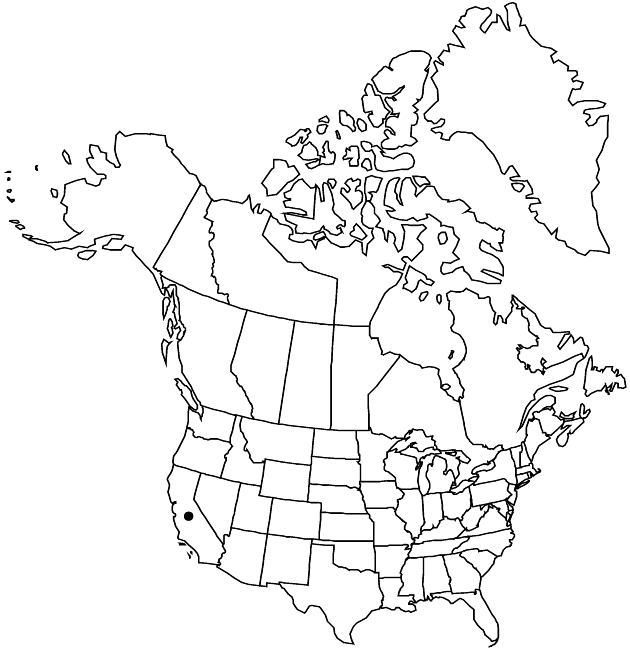Perityle villosa
SouthW. Naturalist 4: 205. 1959.
Perennials or subshrubs, 13–20 cm; villous. Leaves (all alternate): petioles 3–6 mm; blades ovate and entire, or ovate-cuneate and 1–3-lobed, 3–16 × 4–10 mm, ultimate margins entire. Heads borne singly or (2–3) in corymbiform arrays, 7.5–9.5 × 5–7 mm. Peduncles 10–20(–25) mm. Involucres campanulate. Phyllaries 13–23, linear-lanceolate to oblong-lanceolate, 4–7 × 1–1.5 mm. Ray florets 0. Disc florets 30–75; corollas yellow, tubes 1–1.7 mm, throats 1.8–3 mm, tubular to subfunnelform, lobes 0.7–0.8 mm. Cypselae linear to oblanceolate, 3–3.5 mm, margins thin-calloused, short-hairy; pappi 0, or of 1–2, equal or unequal bristles 1–2 mm plus callous crowns. 2n = ca. 3x = 51.
Phenology: Flowering spring–fall.
Habitat: Rock crevices
Elevation: 1700–2600 m
Discussion
Of conservation concern.
Perityle villosa occurs in the Inyo, Panamint, and Grapevine mountains in and near the Death Valley region. Two distinct morphotypes characterized by either entire or lobed leaves appear to exist in Hanaupah Canyon in the Panamint Mountains. Some chromosomal evidence suggests that the variability of P. villosa within that population may result from the co-occurrence there of diploids, triploids, and tetraploids.
Selected References
None.
